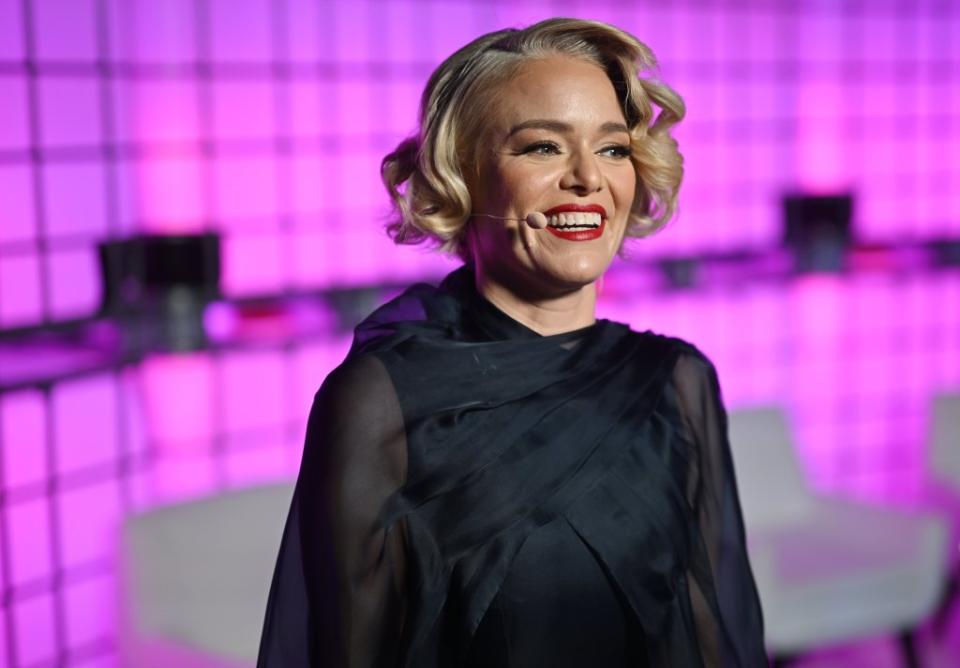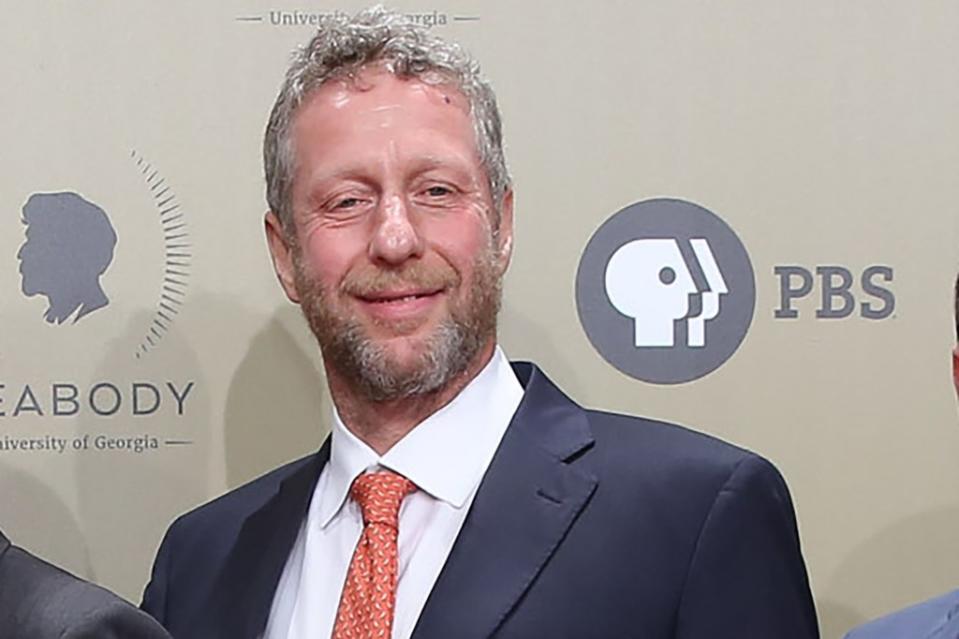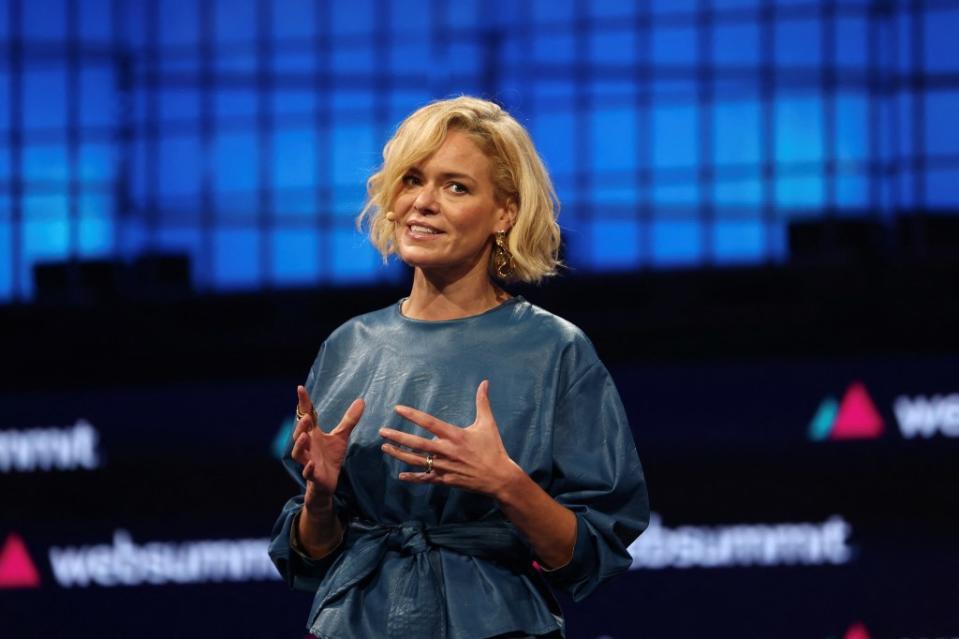NPR CEO slams Uri Berliner’s ‘bad faith distortion’ of her woke social media posts

- Oops!Something went wrong.Please try again later.
Embattled NPR chief executive Katherine Maher shrugged off criticism of her “woke” social media comments and pushed back on internal turmoil after a veteran staffer called out the public broadcaster for its left-leaning bias.
Maher, the former head of Wikipedia parent Wikimedia who grabbed the reins as NPR’s CEO in March, faced backlash over past comments she made on everything from the First Amendment to misinformation to the idea that written history is tilted toward the worldview of white men.
“All of this, frankly, is a bit of a distraction relative to the transformation our organization needs to undergo in order to best serve our mandate,” Maher told the Wall Street Journal on Wednesday.

The resident of liberal bastion Park Slope, Brooklyn, agreed to the interview with the conservative publication two weeks after NPR was slammed for its myopic coverage by Uri Berliner, who penned an essay on website the Free Press called “I’ve Been at NPR for 25 years. Here’s How We Lost America’s Trust.”
Maher condemned Berliner’s claims of bias at the network, telling the Journal that NPR should be open to criticism, but defended the news organization against his accusations.
“We have robust conversations across the organization, including in response to the article,” she said.
“Clear and well-reasoned pieces” from reviewers, like a write-up from NPR’s public editor and Poynter executive Kelly McBride that examined coverage of Israel and Gaza, have “found that our journalism is really solid,” she added.
Berliner, a Peabody Award-winning journalist, called out journalistic blind spots around major news events, including the origins of COVID-19, the war in Gaza and the Hunter Biden laptop.
He also said he counted 87 registered Democrats and no Republicans on and presented these findings to his colleagues at a May 2021 all-hands editorial staff meeting.
Berliner was suspended without pay and then resigned, citing what he characterized as Maher’s hostility toward him and criticism of the claims he was making about the outlet.
“When I suggested we had a diversity problem with a score of 87 Democrats and zero Republicans, the response wasn’t hostile,” Berliner wrote. “It was worse. It was met with profound indifference.”
The imbroglio led Republican lawmakers and conservative commentators to demand that federal funding be pulled from NPR, which draws a portion of its underwriting from the government.

Maher responded to Berliner’s essay by claiming that the veteran journalist was being “profoundly disrespectful, hurtful, and demeaning” to his colleagues.
She accused him of “questioning whether our people are serving our mission with integrity … based on little more than the recognition of their identity.”
Before resigning, Berliner pointed to Maher’s own bias, citing a trove of past posts unearthed on X and adding that the CEO is the “opposite” of what the embattled radio outlet needs.
Her posts — which were resurfaced by conservative writer Christopher Rufo — included calling Donald Trump “racist” in 2018 and blasting Hillary Clinton for using the terms “boy” and “girl,” saying she was “erasing language for non-binary people.”

“We’re looking for a leader right now who’s going to be unifying and bring more people into the tent and have a broader perspective on, sort of, what America is all about,” Berliner told NPR media reporter David Folkenflik last week. “And this seems to be the opposite of that.”
Rufo and others also circulated a video clip from a 2021 interview in which Maher describes the First Amendment as the biggest challenge in the fight against disinformation.
Maher was referring to the difficulties of regulating social media platforms.
She said it was important for tech companies to observe free speech rights, but “it also means it’s a little bit of a tricky road to be able to really address some of the real challenges of where does bad information come from.”
Maher told the Journal that she has a “robust belief in the First Amendment,” and that her comments were taken out of context.

She was referring to the “landscape of constitutional protections and why that limits options of policymakers taking on certain issues,” she said. “It is by no means a personal perspective; it’s a very bad faith distortion of a nuanced perspective on a policy landscape issue.”
Maher also said she is focused on NPR’s long-term growth, not “a news cycle that asks about statements as a private citizen from many years ago.”
She also claimed that her personal political opinions do not affect the way she does her job.
“There are many professions in which you set aside your own personal perspectives in order to lead in public service, and that is exactly how I have always led organizations and will continue to lead NPR,” she said.

